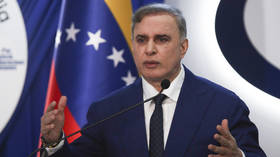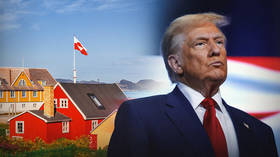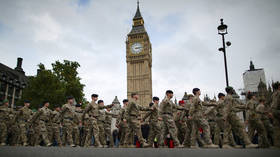Police violence, executions, Gitmo: US grilled by UN human rights panel
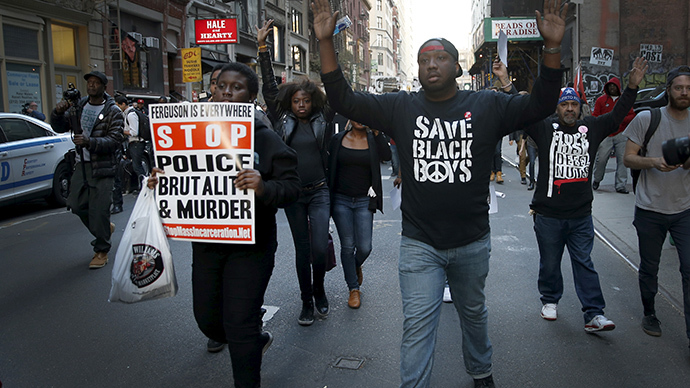
The UN Human Rights Council called out the US over the disturbing trend of excessive force being used against minorities by law enforcement agencies, adding that the US has “largely failed” to follow up on recommendations made in 2010.
Appearing before the so-called Universal Periodic Review, which all 193 UN countries must submit to every four years, US ambassador to the council Keith Harper and acting US legal advisor Mary McLeod were quizzed regarding recent cases of police brutality.
Namibia UN representative Gladice Pickering called on US officials to "collaborate closely with marginalized communities to fix the broken justice system that continues to discriminate against them, despite recent waves of protest over racial profiling and police killings of unarmed black men."
James Cadogan, a senior counselor in the US Justice Department's civil rights division, told the meeting in Geneva his country must strive to ensure that “our civil rights laws live up to their promise," before rattling off a list of cases of high-profile killings of unarmed black men by the US police.
"The tragic deaths of Freddie Gray in Baltimore, Michael Brown in Missouri, Eric Garner in New York, Tamir Rice in Ohio, and Walter Scott in South Carolina have... challenged us to do better and to work harder for progress," he said.
In the case of Freddie Gray, six police officers have been charged in connection with Gray's death. The public is closely watching the results of such cases, coming as it does just months after the death of Michael Brown, the unarmed black teenager who was shot and killed in Ferguson, allegedly as his arms were raised in a surrendering gesture.
One of the outgrowths of these unfortunate incidences has been the so-called Black Lives Matter movement, which began as a hashtag after George Zimmerman's acquittal for the shooting death of Trayvon Martin in 2013, and gained momentum following the shooting of Michael Brown.
Cadogan said criminal charges have been brought against more than 400 law enforcement officials in the last six years, the AP reported.
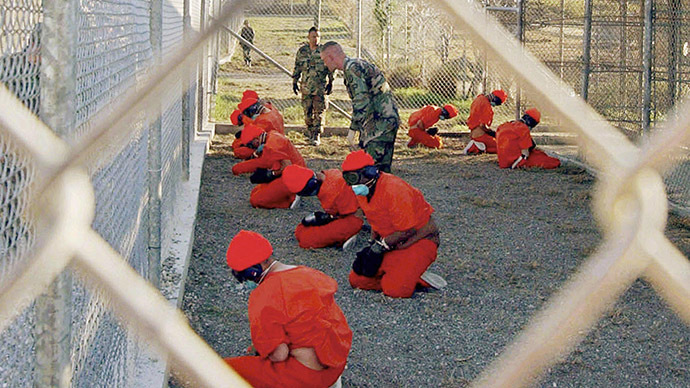
Human Rights Watch says the US has "largely failed" to introduce the UN’s recommendations from 2010. These included not only the subject of police brutality, but also the study of racial inequalities regarding the death penalty.
"The US has been strong on process and short on substance," Antonio Ginatta, US advocacy director at Human Rights Watch, said in a statement ahead of the latest review.
At the same time, the US heard calls to close Guantanamo Bay, the detention facility on Cuban territory where over 100 men continue to be held, as well as reining in Internet surveillance, the AP reported.
Representatives from Brazil and Kenya expressed concern over the full extent of America’s surveillance system, brought into the light of day in 2013 by NSA whistleblower Edward Snowden. Last week, a federal appeals court ruled that the National Security Agency's program to collect data on phone calls violates the Constitution.
David Bitkower, a deputy assistant attorney general with the US Justice Department, said the government does not collect intelligence to suppress dissent or to give businesses an advantage, and insisted there is "extensive and effective oversight to prevent abuse," according to the AP.
The US officials also heard criticism over the continued use of the death penalty.
Swedish UN representative Anna Jakenberg Brinck called for a "national moratorium on the death penalty aiming at complete abolition."
Other countries, including France, pushed for "full transparency" in the types of drugs being administered during executions, following news that some death row inmates suffered lingering pain and death during their executions.
The United States ranks fifth in the world in executions after China, Iran, Saudi Arabia and Iraq, according to Amnesty International.



